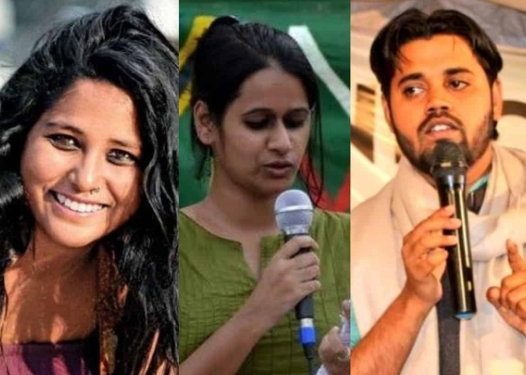New Delhi: Reading down of anti-terror law is an important issue and may have pan-India ramifications, the Supreme Court said Friday. The Supreme Court sought responses from three student activists granted bail by the Delhi High Court in north-east Delhi riots case. However, the apex court said that bails granted to the three students will not be affected for the time being and refused to stay the high court order as mentioned in the plea by Delhi Police.
The high court judgements will ‘not to be treated as precedent by any Court’ to give similar reliefs, the apex court said. It made the observation while hearing Delhi Police appeal against the bail.
Also read: Delhi riots: Student activists Natasha, Devangana, Asif released on bail
A vacation bench of Justices Hemant Gupta and V Ramasubramanian made it clear however that the bails granted to the student activists will not be affected for the time-being.
Taking note of Solicitor General Tushar Mehta’s submission that the entire anti-terror law, UAPA, has been turned upside down by the Delhi High Court while granting bail to these activists, the bench said what is troubling it was that 100 pages of the verdict have been rendered while granting bail and judgement discussed the entire law.
The High Court had June 15 granted bail to JNU students Natasha Narwal and Devangana Kalita and Jamia student Asif Iqbal Tanha saying that in an anxiety to suppress dissent the State has blurred the line between right to protest and terrorist activity and if such a mindset gains traction, it would be a ‘sad day for democracy’.
The high court, in three separate judgments, set aside the trial court’s orders denying bail to student activists. It allowed their appeals by admitting them to regular bail on furnishing a personal bond of Rs 50,000 each along with two sureties of the like amount.






































